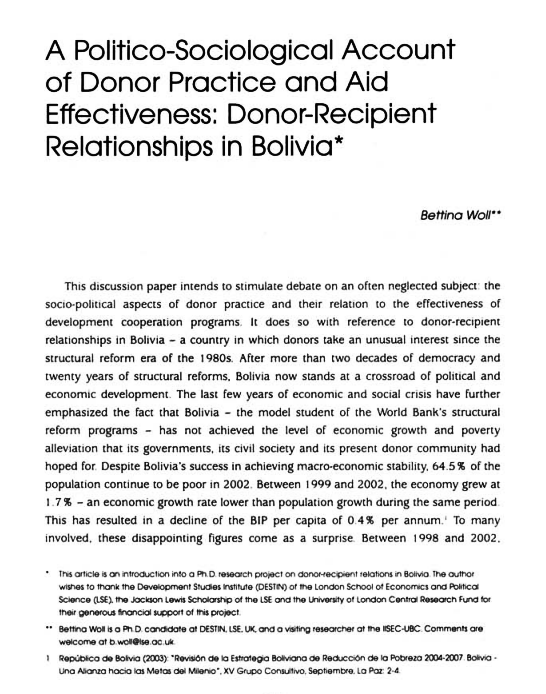A Politico-Sociological Account of Donor Practice and Aid Effectiveness: Donor-Recipient Relationships in Bolivia
DOI:
https://doi.org/10.35319/lajed.20042326Keywords:
Sociopolitical economy, Development, MacroeconomicsAbstract
This discussion paper intends to stimulate debate on an often neglected subject: the socio-political aspects of donor practice and their relation to the effectiveness of development cooperation programs. It does so with reference to donor-recipient relationships in Bolivia - a country in which donors take an unusual interest since the structural reform era of the 1980s. After more than two decades of democracy and twenty years of structural reforms, Bolivia now stands at a crossroad of political and economic development. The last few years of economic and social crisis have further emphasized the fact that Bolivia - the model student of the World Bank's structural reform programs - has not achieved the level of economic growth and poverty alleviation that its governments, its civil society and its present donor community had hoped for.
Downloads






